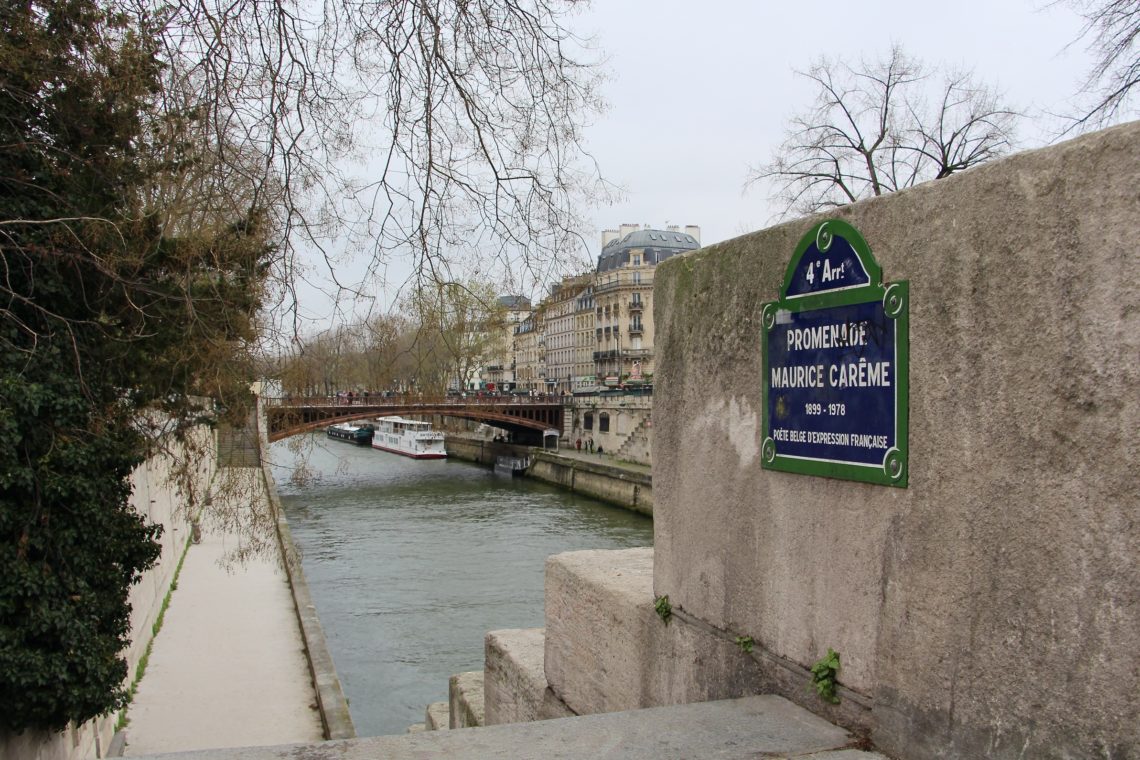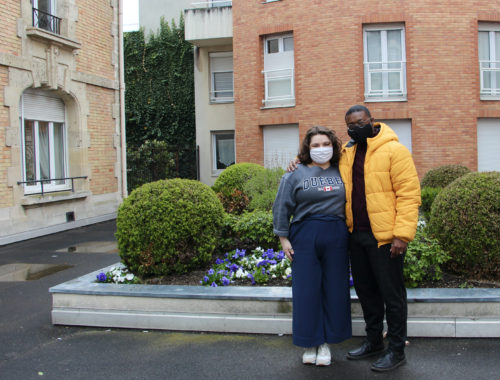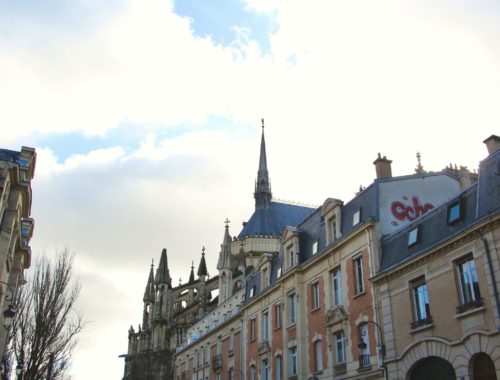
Why French Private Schools Aren’t Always the Better Choice
Considering pursuing higher education in France? One of the first choices you’ll need to make is what kind of French institution you’d like to attend. As Americans who got our master’s degrees at a French public university, we’re plugged into the international student community, where the sentiment that costly schools are superior to cheap schools is widespread, especially amongst anglophones. However, we have some thoughts about this hot topic that will arm foreign students with the knowledge they need to make a truly informed decision about their education. To learn why we believe that French public schools are severely underrated, keep reading!
The French higher education system can seem convoluted when you’re used to how it’s done elsewhere, particularly because it’s not quite as simple as comparing private schools and public schools. Campus France breaks down the French higher education system into five categories:
- Universités (Public Universities)
- Grandes écoles (Prestigious Universities)
- Écoles et instituts spécialisés (Specialized Schools and Institutes)
- Écoles supérieurs d’art et d’arts appliqués (Schools of Art and Applied Arts)
- Écoles nationales supérieurs d’architecture (National Schools of Architechture)
In everyday conversation, the French simplify this framework by only distinguishing very affordable universités from often expensive écoles. Public universities in France are funded by the government, offer standardized diplomas, and usually deliver a basic, unornamented higher education experience. Grandes écoles are the more esteemed French establishments, though their quality and renown can vary greatly by institution and program. They can be public or private, meaning that some of them come with a relatively high price tag, and they frequently boast more bells and whistles than the average université.
The majority of students in France, both French and foreign, do their schooling at universités. Nevertheless, in anglophone circles, attending an université is commonly viewed as undesirable. Time and time again, we see people insist that education at universités is of poor quality, that degrees from universités are useless on the job market, that graduates of universités can’t earn a good living, and more. While everyone is entitled to their opinion, many of the people who bring forth these arguments are école students, graduates, or hopefuls – meaning they have never attended université at all.
The way we see it, too many anglophone foreigners dont give universités a fair chance. Between the powerful marketing that comes from écoles themselves and the oft-repeated but rarely accurate preconceived notions that circulate through the grapevine, anglophones looking to study in France aren’t likely to consider universités their top choice. As American graduates of the Université de Reims Champagne-Ardenne who earned master’s degrees and found gainful employment in France thereafter, we want to set the record straight!
Fundamentally, the subject that frames this discussion is the cost of attending an université versus an école. Going to université in France is very affordable. In theory, for non-European students, one year at the bachelor’s level costs 2,770 € and one year at the master’s level costs 3,770 €. In practice, a good number of universités charge non-European students the same price as European students, that is to say 170 € per year at the bachelor’s level and 243 € per year at the master’s level. This was the case for us at the Université de Reims Champagne-Ardenne, where we paid 486 € in tuition each for our master’s degrees as Americans.
Studying at an école, on the other hand, often comes at a higher cost. On average, according to l’Étudiant, a grande école program in France will run you around 12,400 € per year. However, some of the most popular grandes écoles that anglophones set their hearts on are even pricier. For example, HEC Paris and ESSEC cost more than 18,000 € per year, while ESCP, EMLYON, and EDHEC cost around 17,000 € per year. And those are just the averages – a Master in Management (MIM) from ESSEC will set you back 46,000 €, and an MBA at HEC Paris will cost you a whopping 90,000 €. So, what makes foreign students keen to pay these kind of sums?
Granted, there are some things that écoles offer that are harder to find at universités. For example, many écoles have impressive alumni networks and partnerships with large companies that facilitate finding internships during their students’ studies and full-time work following their graduation. Furthermore, école graduates are offered, on average, larger salaries right out of school than université goers (note that even these salaries remain low when compared to salaries in the United States). In this way, écoles generally make a greater effort to accompany students on their integration into the work world and can play a role in the amount of money graduates take home from the get-go. Consequently, université students have to be much more resourceful and self-reliant when it comes to all things work.
Conversely, universités have the upper hand over écoles in a few domains as well. You really can’t beat the price of universités – they’re leaps and bounds more accessible to foreign students who aren’t looking to (or simply can’t) spend thousands of euros on their education. Moreover, diplomas from universités are automatically reconnu par l’État (approved by the state), meaning that foreign students hoping to find work after graduation with the recherche d’emploi ou création d’entreprise residence permit (RECE) won’t have to worry about their diploma’s legitimacy. Students of écoles often have to contend with high price points and the possibility that their dream program won’t qualify them for the RECE.
One popular motivation for choosing an école over an université is the perceived need to attend a prominent, reputed school. In order to get a job in France as a foreigner, so the platitude goes, you have to attend one of the best schools. Similarly, it’s widely believed that if you want to make a good living in France, then you must graduate from an elite école. As it turns out, these notions aren’t entirely true. Clearly, finding a job in France that pays enough to land a coveted travailleur temporaire (temporary worker) or salarié (salaried employee) work permit is perfectly doable by completing a master’s degree at an université – we know because we’ve done it ourselves! For anglophone students whose main goal is to live in France by earning a decent living, going to an école isn’t a requirement.
Another factor that inspires anglophones to choose an école rather than an université is the promise of a deluxe schooling experience. Rumors would have you believe that all universités are run-down dumps with second-rate professors while all écoles are cutting-edge wonderlands offering only the best of the best instruction. Yet, neither of these generalizations are accurate. Many université and école campuses are more or less equivalent – mid-tier buildings, average landscaping, a mix of old and new technologies. Plus, at both universités and écoles, you can find accomplished professors and experienced professionals teaching classes. The truth is that the experience at écoles and universités, save for a handful of exceptionally stellar or extraordinarily abysmal examples, are more similar than many would like to admit.
From our standpoint, too many anglophones are convinced that attending université is out of the question for no good reason. Not to mention the distress that we’ve seen ensue when the école experience turns out to be mediocre, the job search in France as a foreigner is still tough, and the salary doesn’t compensate for the loans that paid for the école degree. Does this mean that nobody should choose école over université? Of course not! It does mean, however, that you should carefully consider your personal situation and the facts about the different types of schools in France before making your choice.
If you value going to a prestigious school, want in on an alumni network and opportunities with partner businesses, and have a way to finance what can be pricey schooling, an école might be for you. If you’re merely looking for an affordable way to get a degree that will unlock the chance to live in France long-term, you should think about going to an université. We’re tired of the old adage that universités don’t open doors for foreigners, especially because we know that it simply isn’t true.
If pursuing a degree in France is in your future, we hope to have given you some food for thought and encouraged you to at least consider public university. This simplified examination of école versus université obviously doesn’t cover the diversity of schooling opportunities available in France, so don’t stop your research here! Is going to an université in France a good idea, or is attending an école the only way to go? Tell us what you think in a comment!
Here’s how we found jobs in France as Americans!
Discover the best parts of getting a master’s degree in France!
Discover the worst parts of getting a master’s degree in France!
You May Also Like

Studying in France as Americans: Seven Months of Perseverance
April 14, 2021
Important French University Abbreviations and Vocabulary You Need to Know
February 16, 2022


4 Comments
Erica
Hi Jalen and Maria,
Thanks so much for the wonderful resources on your website! Using the information on your website, I applied to graduate school in France and got into a grand école. However, there really are so many institutions that I would have loved to study at that aren’t grandes écoles, and it’s always reassuring to know that there are multiple paths to get to where you want to be. I definitely bought into the hype of thinking that as a foreigner, I needed to get into a grande école to have a shot at finding a job, but it evidently isn’t the case.
That being said, as someone who wasn’t sure where I’ll live after my studies, name recognition of the school in my home country was also important in case I decided to return. I am also considering pursuing a doctorate after my master’s, which played a role in the school I chose in the end. It definitely is a balancing act and there isn’t a definitive best choice for everyone; you need to decide according to your goals, finances and other circumstances.
In any case, looking forward to reading about your continued adventures in France and bonne journée à vous ! : )
Elisabeth
Hi Jalen and Maria!
I would love to read how you approach French now that you have already graduated from university and are working and living in France and have mastered the language at a very advanced level. Do you actively work to improve your language skills, or do you just “go with it” and soak up what you can learn in your daily and professional life?
I have a C2 level in three languages (one of them almost at native level), and yes, sure, you can learn a new phrase here and there, but progress is much slower when you are at an advanced level. It would be really interesting to hear your opinion on this.
Jalen & Maria
Hi, Elisabeth! Thank you so much for this comment. We liked your question so much that we decided to make the answer into a blog post. You’ll find it here.
Sal
An important thing to know is that it’s not just a prestigious / non prestigious split. The subject you’re gonna study influences where you can go. If you want to study medicine, a fairly prestigious field, that’s only done through public university, for example.
In my mind, “grandes écoles” are for business and engineering, for either rich or top-level kids. Pretty sure both those fields can also be done at uni.
The Specialized and Art categories cater to rich kids in other fields, but all of that can be done at uni too.
And the écoles d’archi are self-explanatory.